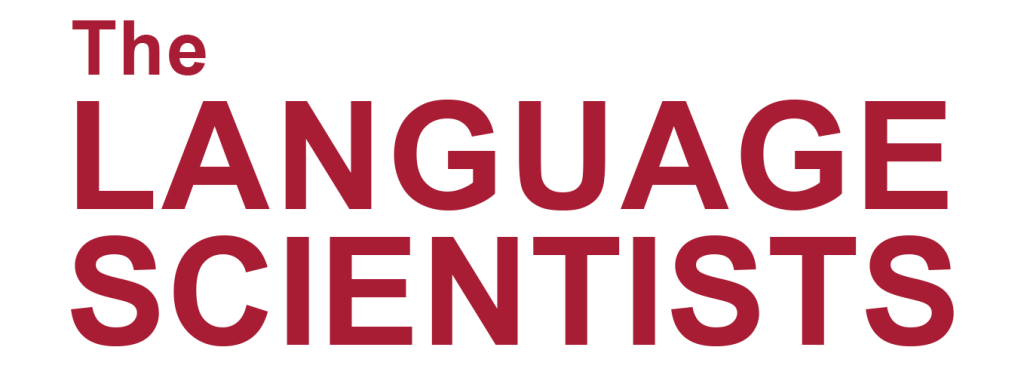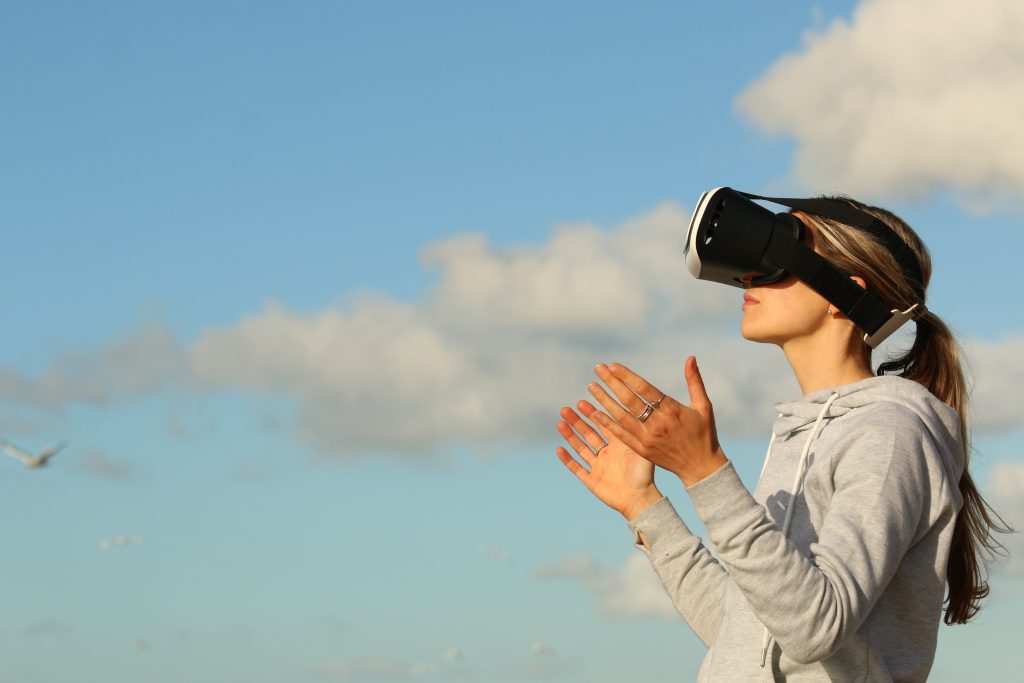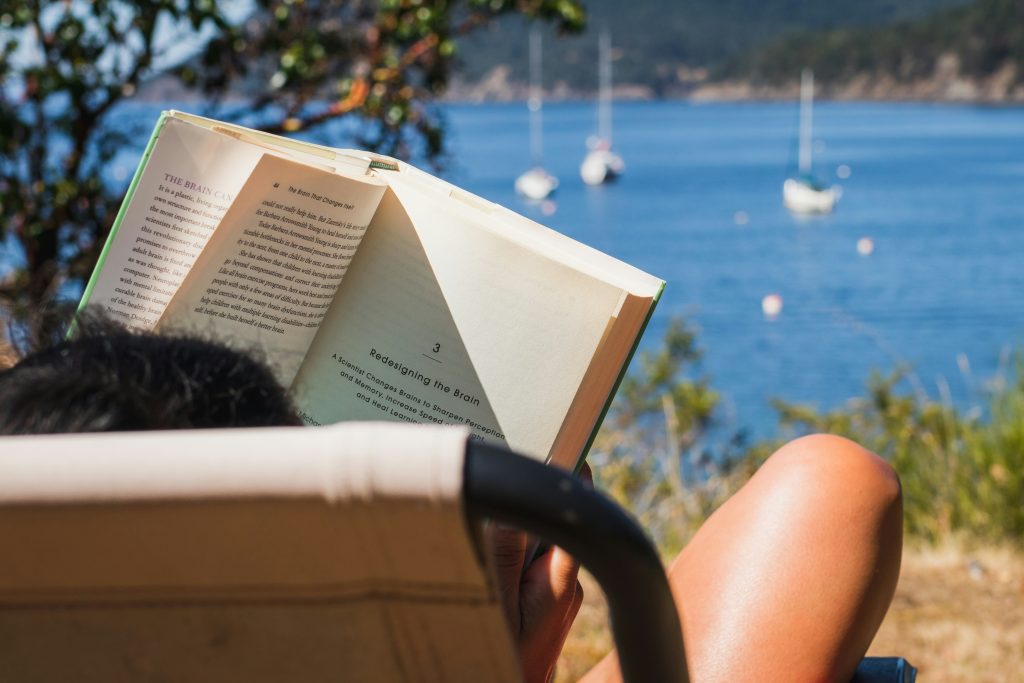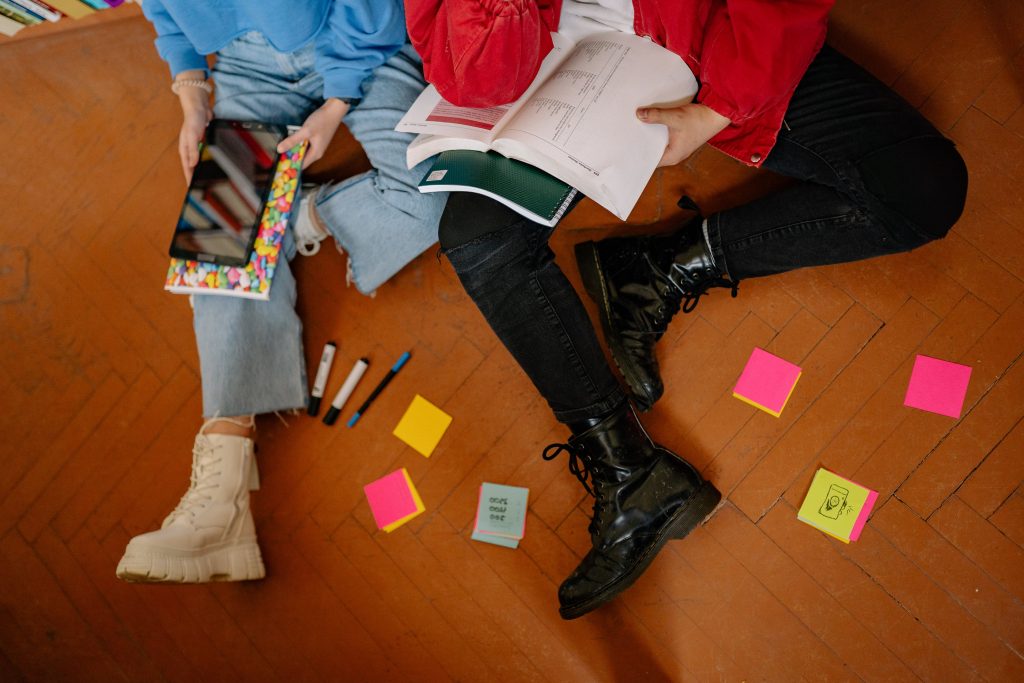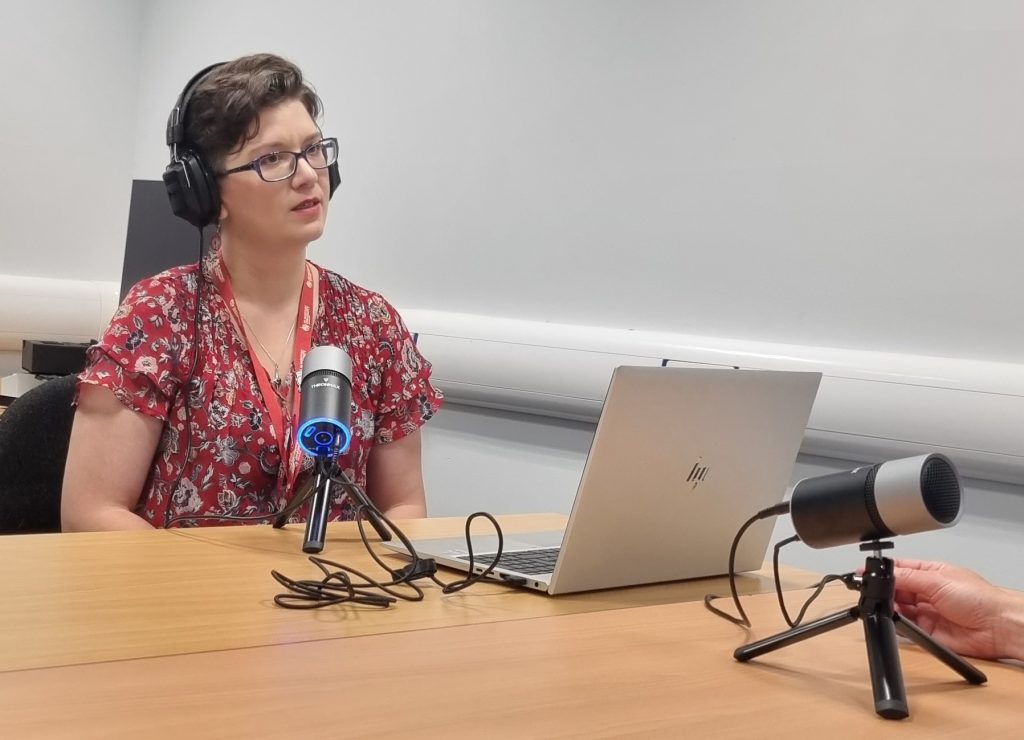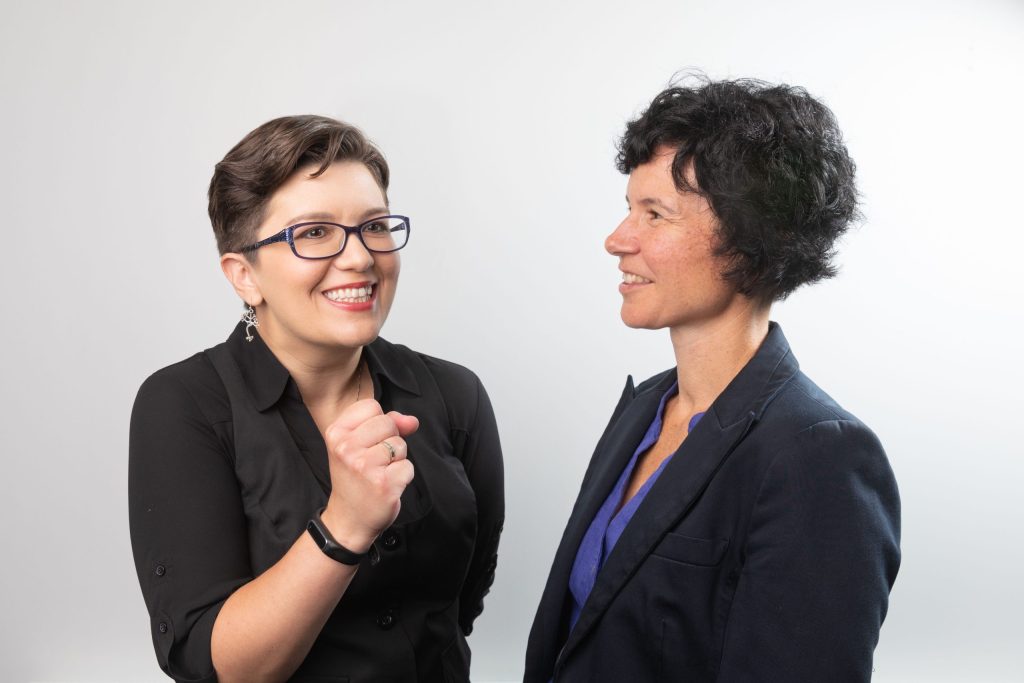In this episode Dr Zavaleta speaks with Dr Elizabeth Enkin about using virtual reality as a tool for language learning. Join us to hear about research using virtual reality to help students speak in the target language whilst reducing feelings of anxiety, even using virtual sculpture making as a way of facilitating target language use. […]
Author Archives: matt@trisonic.co.uk
In this episode, Dr Bisson interviews Dr Alex Mangold from Aberystwyth University on the topic of creative assessment. They discuss the decline in uptake of modern foreign languages at University level and Alex explains how creative assessments could change that by allowing students to produce a creative piece rather than always being assessed through more formal essay writing. […]
In this episode Dr Zavaleta talks to Dr Ana Pellicer-Sanchez about learning vocabulary through reading as well as her research using films with bilingual subtitles. You will find out what Ana recommends to improve vocabulary knowledge in and out of the classroom: from reading a book to watching a film and using an app, her message is clear, […]
In this episode, Dr Bisson speaks with Professor Kathy Conklin about eye-tracking in language research. From archaic equipment with bite bar to newer online tools to track people’s eyes, Kathy explains what eye-tracking can tell us about language processing and language learning. In particular, you get to hear about her fascinating research on binomials: What is so […]
In this episode Dr Zavaleta talks to Dr Bisson about incidental learning and how we can use this type of learning to help us learn a language in and out of the classroom. Being exposed to a language can help you pick up new words, syntax and grammar even if you are engaged in another task. This […]
In this episode you meet us, your hosts for the series, Dr Kaitlyn Zavaleta and Dr Marie-Josee Bisson and we set the scene for what is to come. We are both Senior Lecturers at De Montfort University and we conduct research on language learning. Throughout the series we will be interviewing experts in the field […]
So. You have now listened to some episodes of The Language Scientist Podcast (if not, go for it! We think they are pretty good!) and you might be wondering: “How do you even make a podcast?” I thought I would share our journey from Academics to Podcasters. There are a few important steps: deciding whether […]
It was previously believed that different languages are stored separately in the brain; the since criticised language switch hypothesis https://doi.org/10.1037/0278-7393.15.2.305 suggested that bilinguals were able to activate and deactivate languages, and thus the associated area of the brain. The findings of later experiments show the inaccuracy of this hypothesis. For example, in 1999 an eye-tracking study found […]
